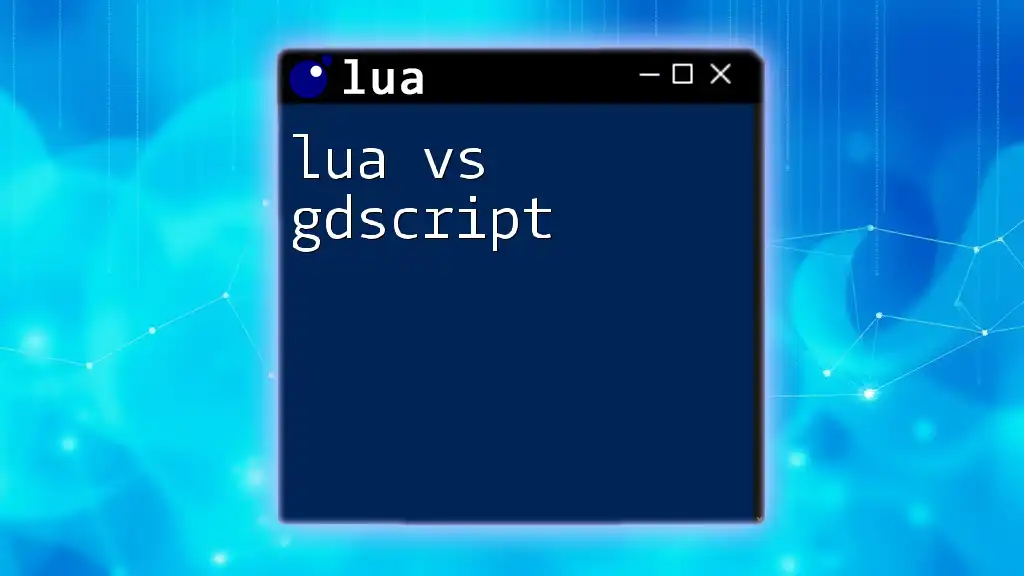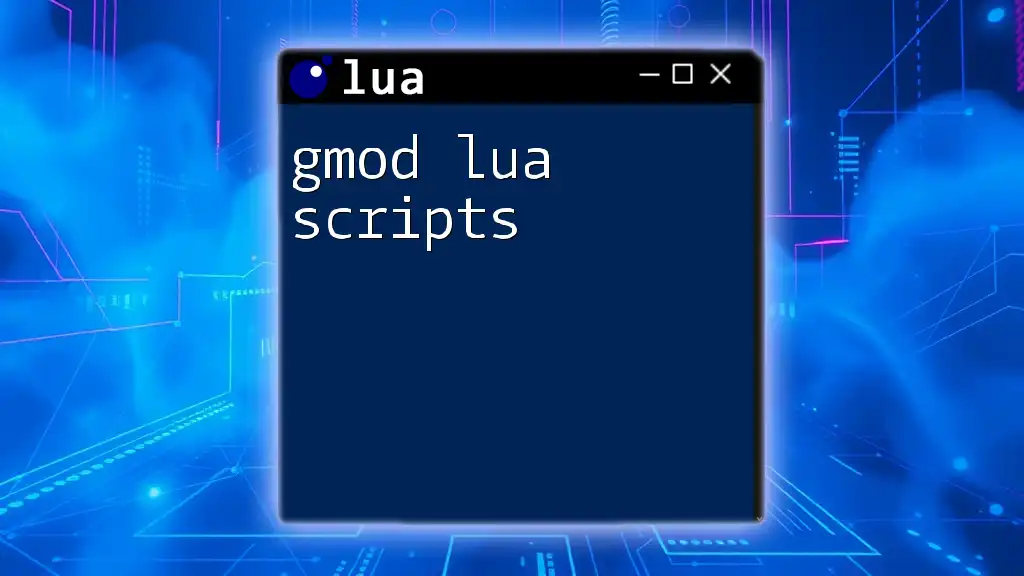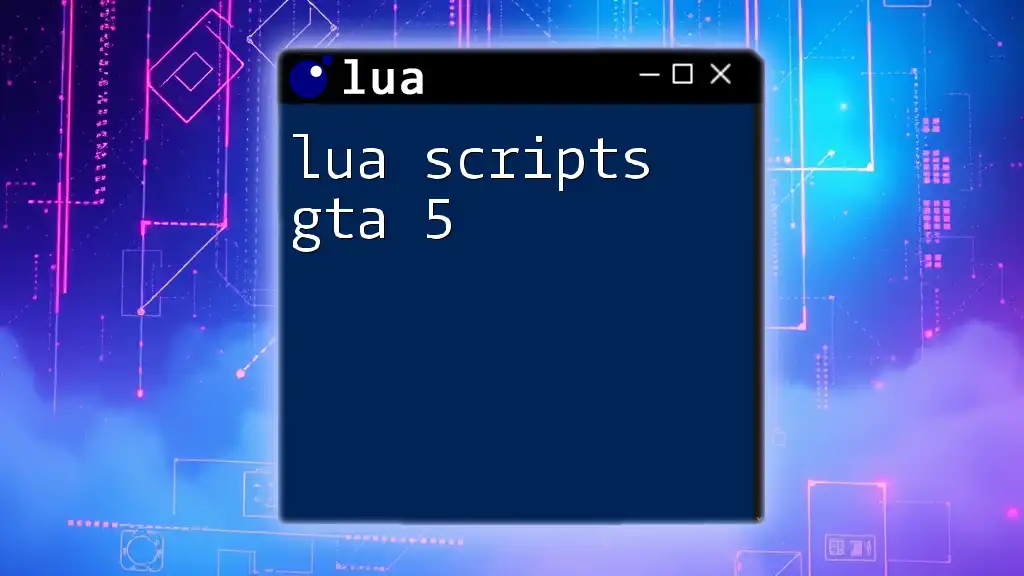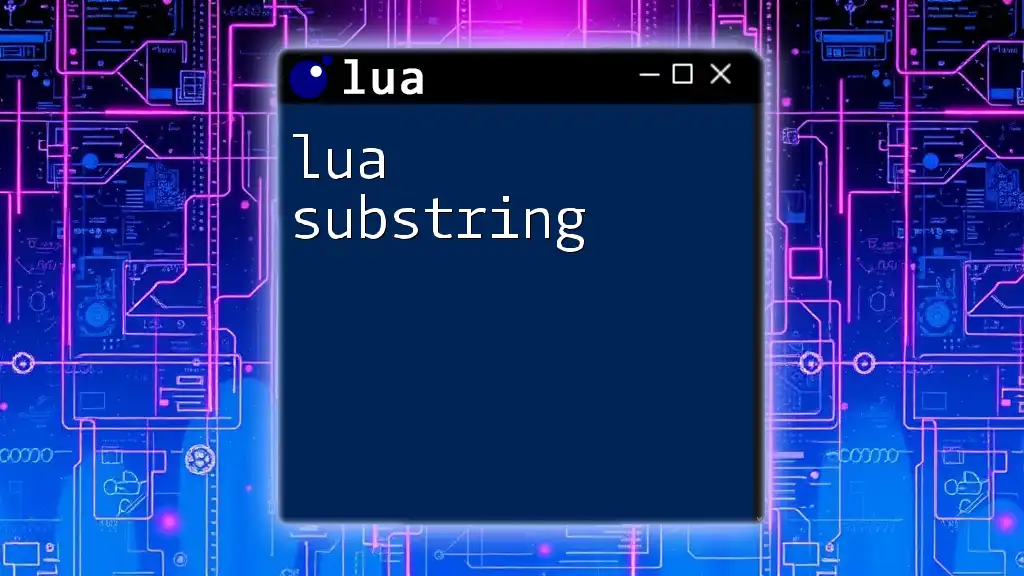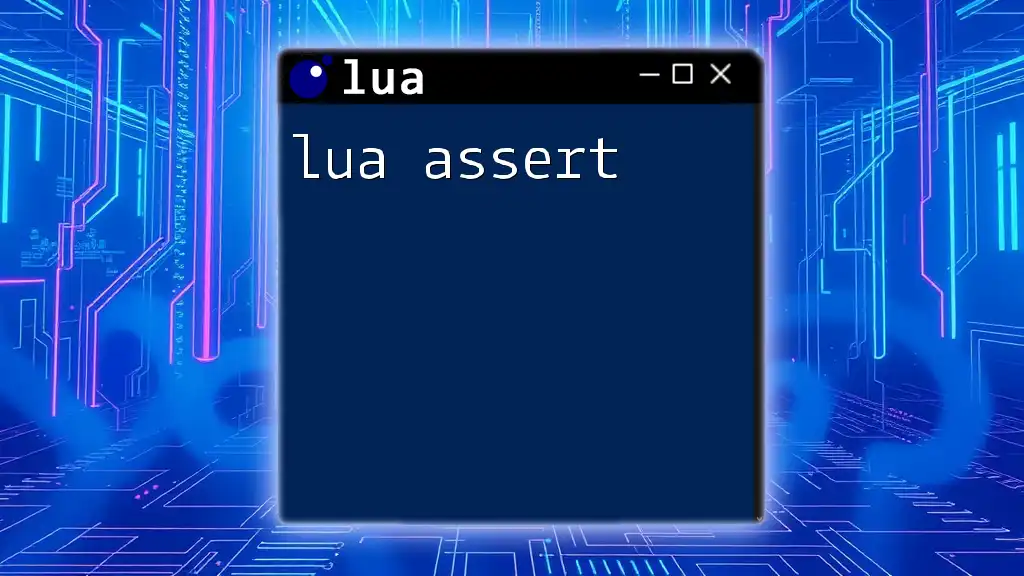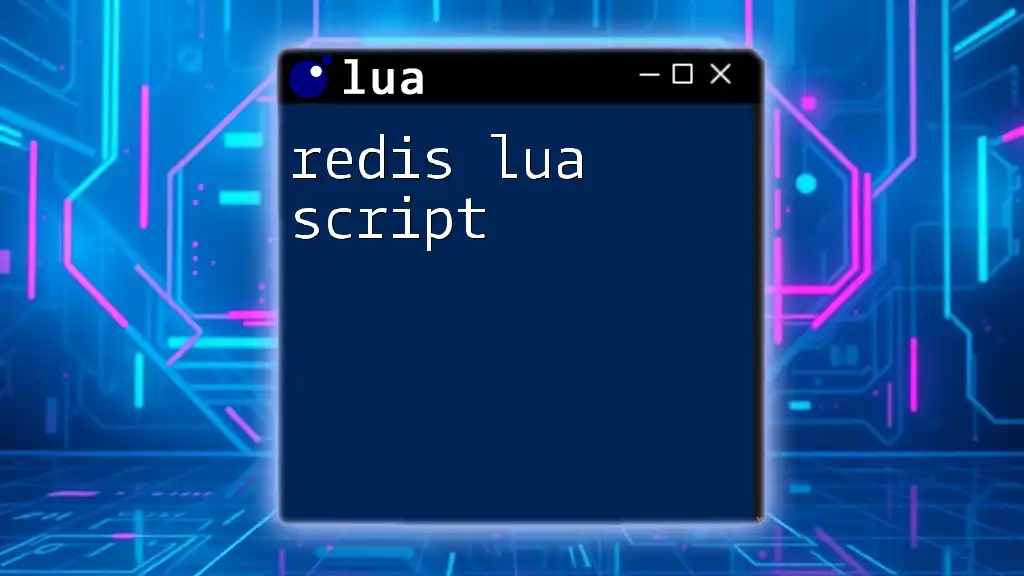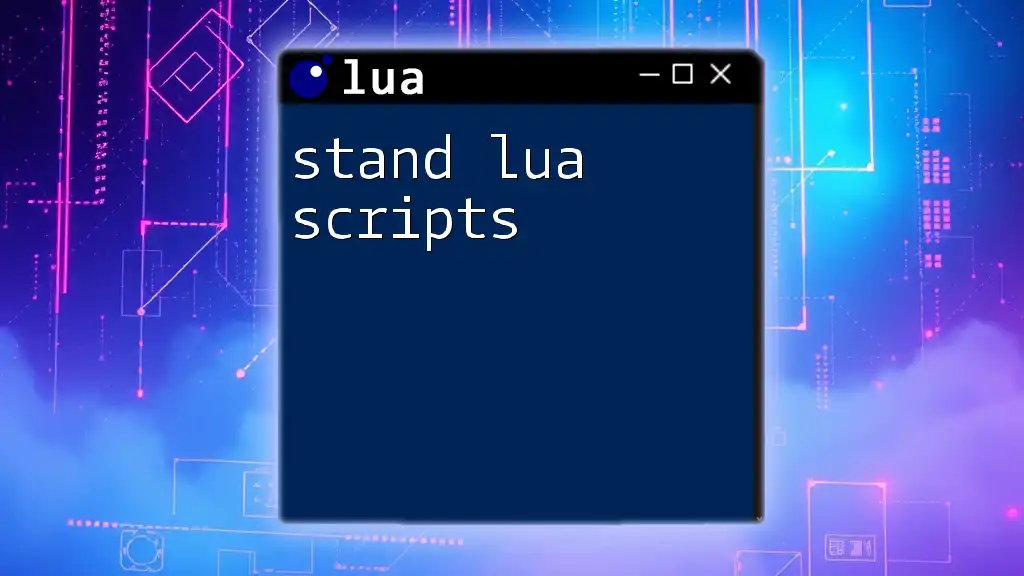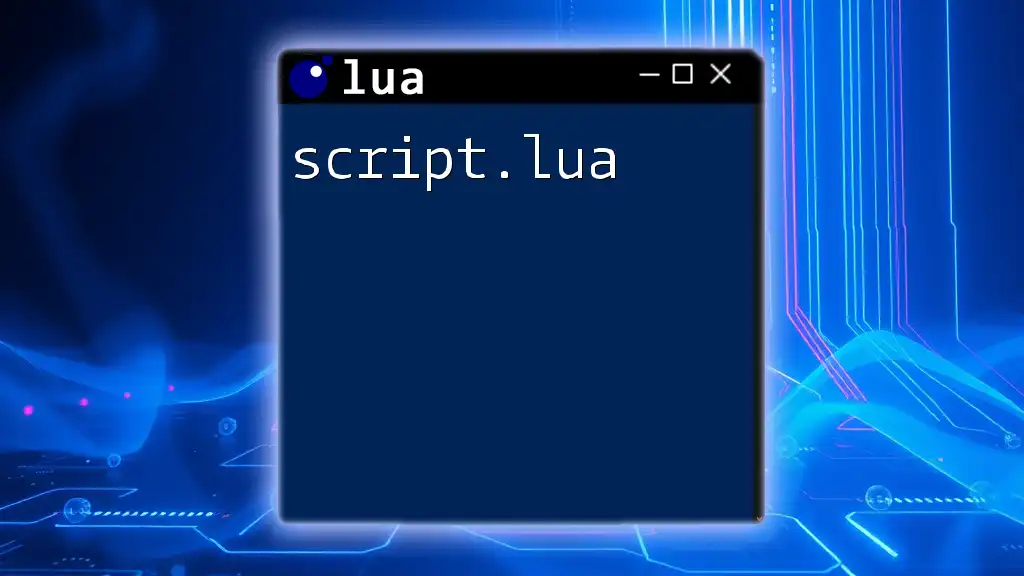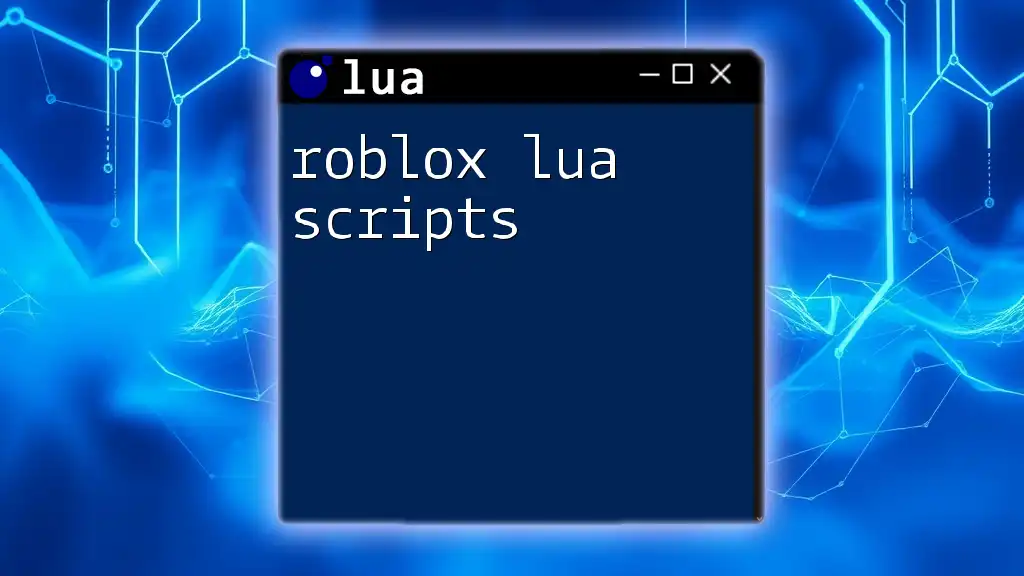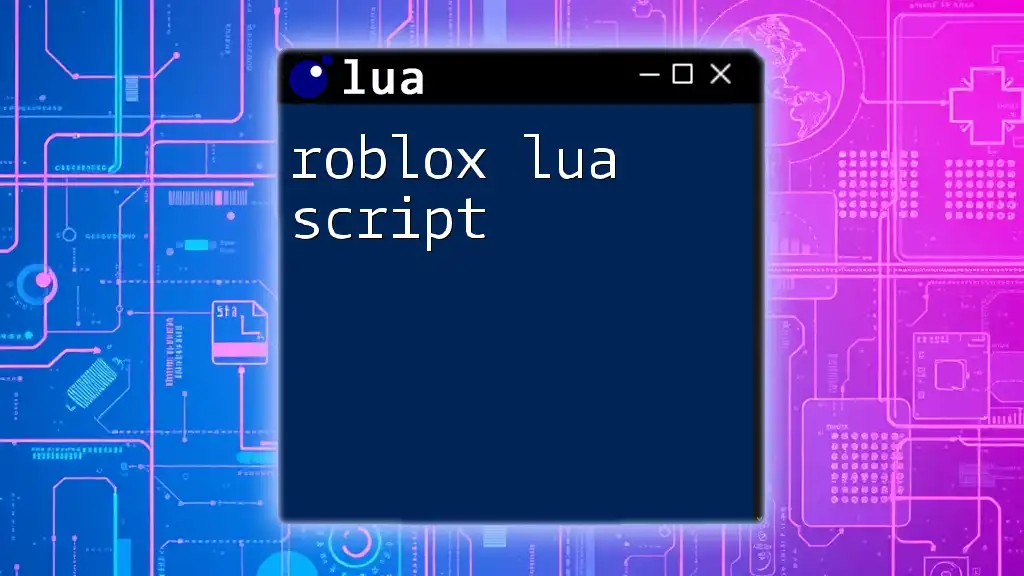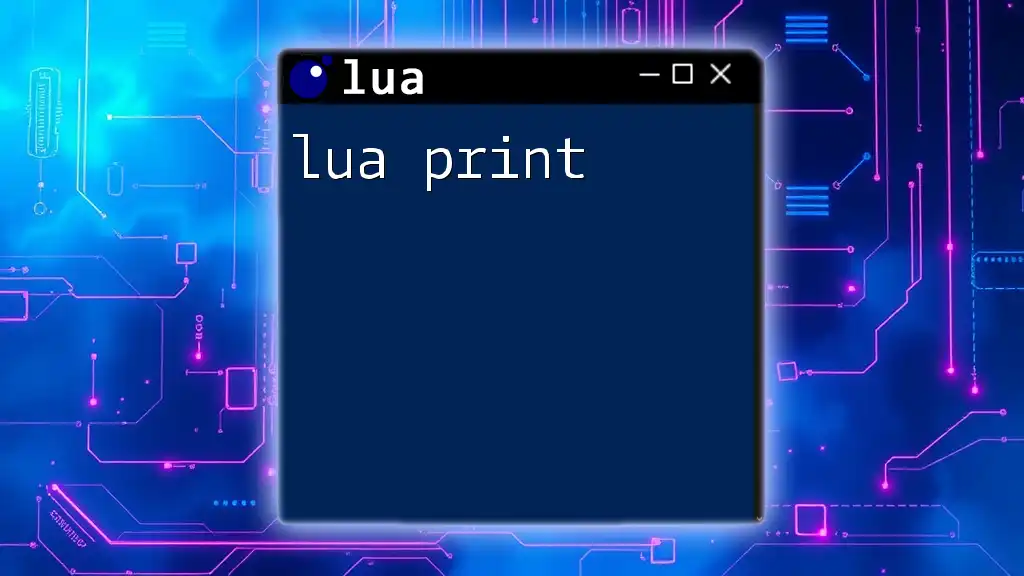Lua is a lightweight scripting language known for its simplicity and flexibility, while GDScript, specifically designed for the Godot engine, leverages Python-like syntax to facilitate game development.
-- Example Lua syntax for printing "Hello, World!"
print("Hello, World!")
What is Lua?
History of Lua
Lua is a powerful, lightweight scripting language created at PUC-Rio by a team looking to provide flexible solutions for data-driven applications. Since its inception in 1993, Lua has been embraced in various industries due to its portability and efficiency, especially in game development and embedded systems.
Key Features of Lua
One of the standout characteristics of Lua is its lightweight nature. The language is designed to be easily embedded within applications, which allows developers to add scripting capabilities with ease. Lua employs dynamic typing, meaning variable types are determined at runtime, and it features automatic memory management, reducing the need for complex memory allocation tasks.
Example of Lua Syntax
-- Simple Lua function
function greet(name)
return "Hello, " .. name
end
print(greet("World"))
This example demonstrates a basic Lua function that concatenates strings. The `..` operator in Lua is used for string concatenation, showcasing the language's readability and straightforward syntax.
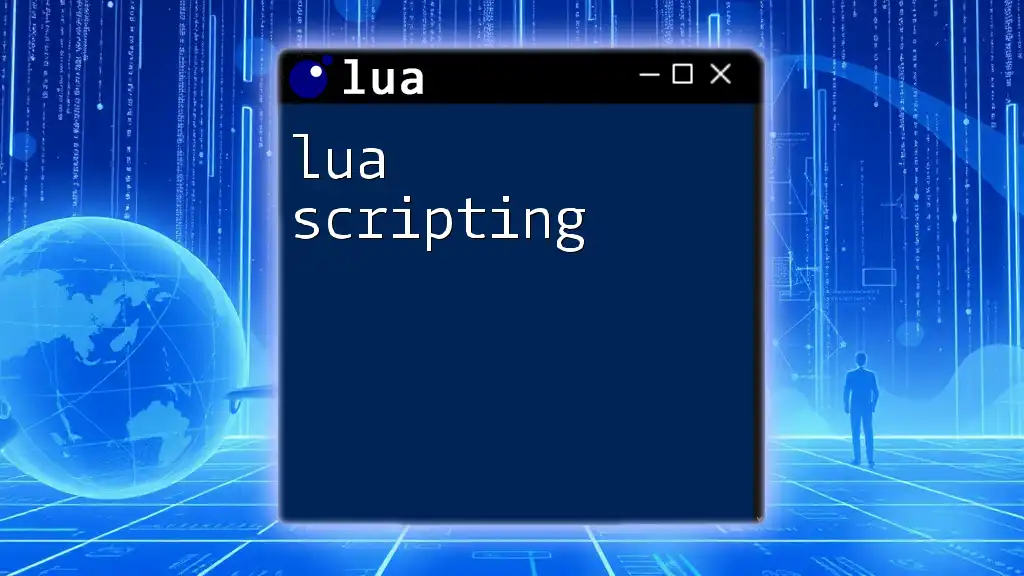
What is GDScript?
History of GDScript
GDScript is a high-level, dynamically typed programming language specifically crafted for the Godot game engine. Drawing inspiration from Python, GDScript was designed to be intuitive and user-friendly, making it a preferred choice for game development.
Key Features of GDScript
GDScript shines in its optimization for game development, allowing developers to create gameplay features quickly and effortlessly. The language integrates seamlessly with the Godot engine, providing a rich set of functionalities explicitly tailored for game developers. GDScript’s syntax is clean and easy to understand, particularly appealing to beginners.
Example of GDScript Syntax
# Simple GDScript function
func greet(name):
return "Hello, " + name
print(greet("World"))
In this example, a simple function demonstrates how GDScript employs indentation and the `+` operator for string concatenation. This structure promotes clarity and helps newcomers quickly adapt to programming concepts.
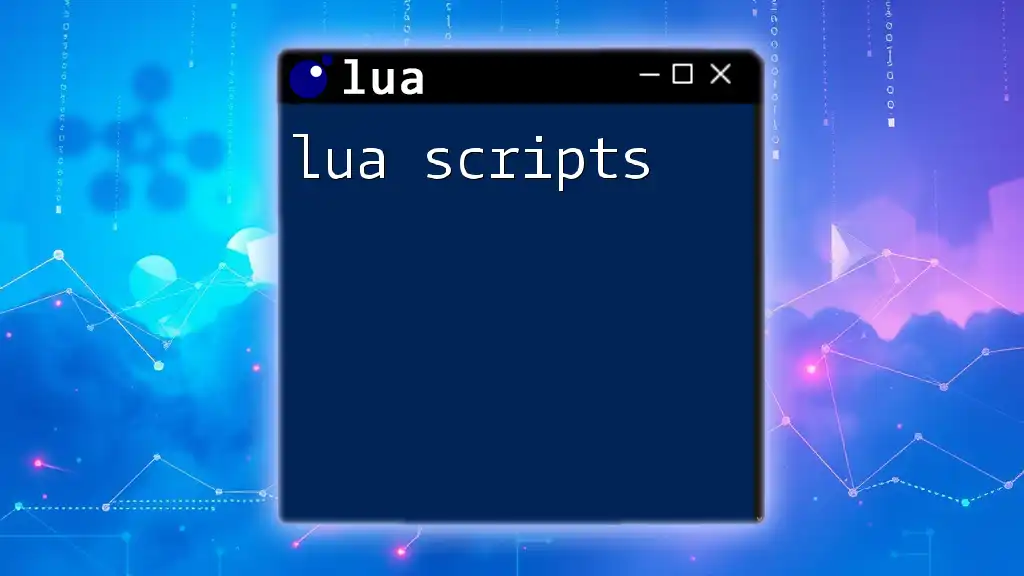
Direct Comparisons
Syntax Differences
When discussing Lua vs GDScript, one of the most apparent differences lies in their syntax. Lua emphasizes conciseness, allowing for compact expressions, while GDScript prioritizes readability through its indentation-based structure.
For instance, consider the following loop in both languages:
-- Lua Example
for i = 1, 5 do print(i) end
# GDScript Example
for i in range(1, 6):
print(i)
In the Lua example, the loop is a single line, reflecting its ability to execute commands compactly. Meanwhile, GDScript's indentation enforces readability, making it easier for beginners to follow the logic.
Performance
Another crucial aspect is performance. Lua, being a lightweight and efficient language, excels in scenarios requiring high speed, often seen in embedded systems or where performance optimization is critical. On the other hand, GDScript has been finely tuned for real-time game loops, allowing developers to leverage Godot’s engine features, but may not perform as well in non-game contexts.
Use Cases
When determining when to choose Lua, think of situations like general-purpose scripting, configuring applications, or even game development through engines like LÖVE or Roblox. Conversely, if your project revolves around game development within the Godot environment, GDScript becomes the clear choice due to its seamless integration and purpose-built features.
Ecosystem and Libraries
Both languages boast extensive ecosystems, but they cater to different needs. Lua is bolstered by a variety of libraries like LÖVE and Corona SDK, while GDScript offers a comprehensive toolkit within Godot, making it equipped with everything needed to create games efficiently.
In terms of community support, Lua has a smaller but dedicated community, while GDScript benefits from the robust Godot community that supports new developers through abundant resources and collaboration.
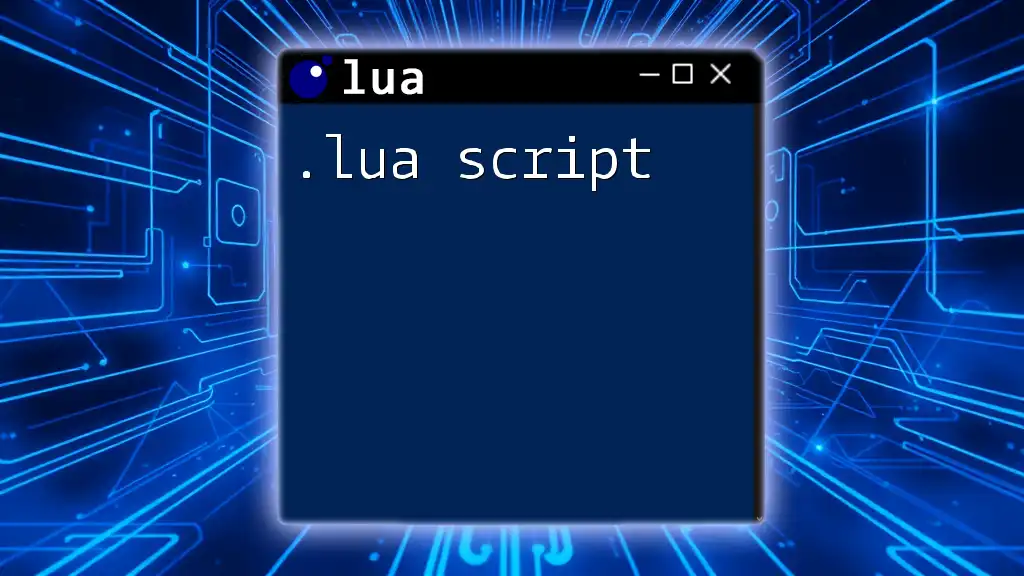
Integration with Game Engines
Lua with Other Engines
Lua is versatile, integrating smoothly with various engines like Unity, Cocos2d, and Roblox. The language's adaptability allows for powerful scripting within diverse environments, making it a frequent choice for embedded applications and game engines alike.
GDScript in Godot
GDScript was specifically designed for the Godot engine, enabling developers to leverage the full potential of the platform effortlessly. The integration with Godot means that GDScript users enjoy direct access to engine features, tools, and a streamlined workflow that enhances productivity.
Comparison of Approaches
The approach to integration differs significantly. In Lua, developers often need to bridge the gap between the scripting language and the game engine, whereas GDScript is inherently built into the Godot engine. This results in a cohesive experience when developing games with GDScript, unlike the additional setup typically required when working with Lua.
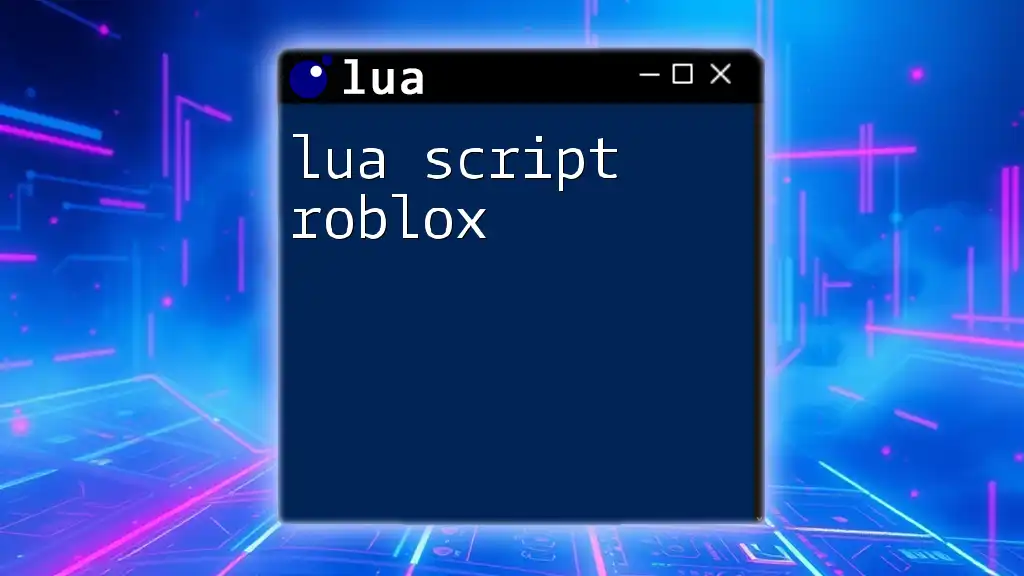
Learning Curve
Difficulty Levels
When considering the difficulty levels, Lua starts strong with a simple syntax, allowing many developers, especially from scripting backgrounds, to pick it up quickly. However, more complex patterns may arise in larger applications, leading to potential confusion.
GDScript, conversely, offers a gentler learning curve for those interested in game development. With a syntax familiar to Python users, newcomers often find it straightforward to grasp essential concepts. The built-in integration with Godot also means that learning GDScript often comes with hands-on experience, enriching the educational journey.
Resources for Learning
A wealth of resources exists to assist learners of both languages. For Lua, prominent materials include books like "Programming in Lua" and numerous online tutorials. For GDScript, the official Godot documentation is extensive, complemented by video tutorials and active discussion forums that foster community engagement.
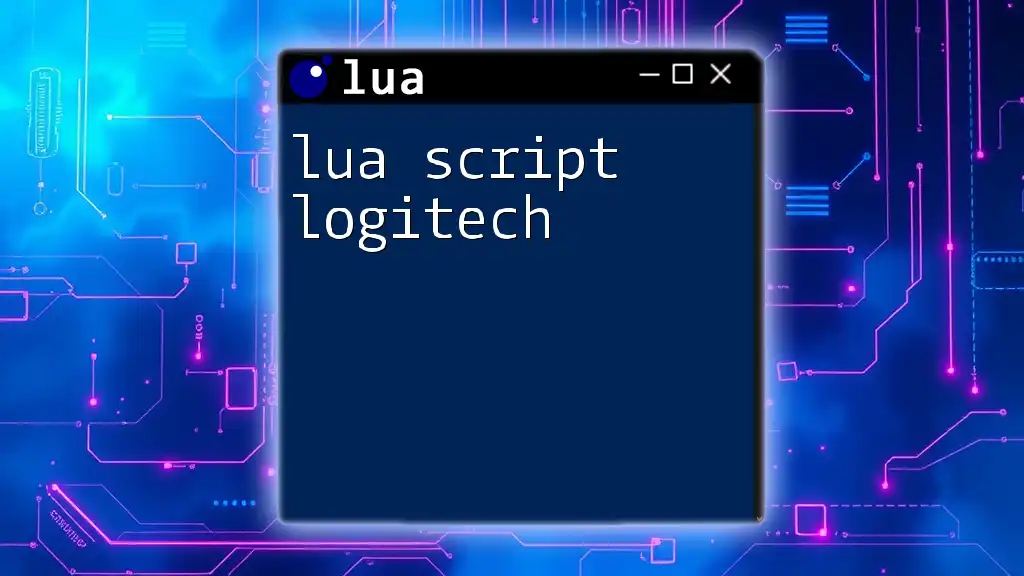
Pros and Cons
Pros and Cons of Lua
Advantages of Lua include its lightweight nature and flexibility, making it suitable for a wide range of applications. It also performs well in resource-constrained environments. However, its disadvantages consist of a smaller community compared to other languages and less specialized toolsets for game development.
Pros and Cons of GDScript
GDScript’s advantages lie in its tailored design for game development, providing an excellent user experience and strong documentation. However, one of its disadvantages is its limited versatility outside the Godot engine, which may restrict developers looking for broader applications.
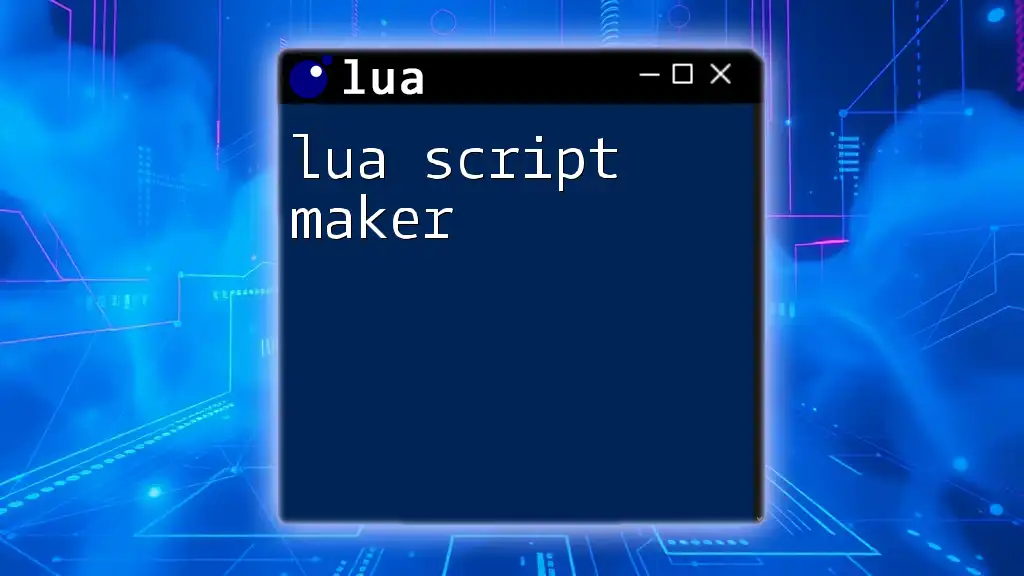
Conclusion
In this analysis of Lua vs GDScript, we’ve explored the unique offerings of both languages, highlighting their key features, differences, and ideal use cases. Whether you’re interested in Lua for general programming tasks or considering GDScript for focused game development within the Godot engine, understanding the nuances can significantly influence your success in programming.
Both languages have their strengths and challenges, and the choice ultimately hinges on your specific project requirements and goals. Embrace the journey of exploring these languages, whether through personal projects, community involvement, or guided learning.
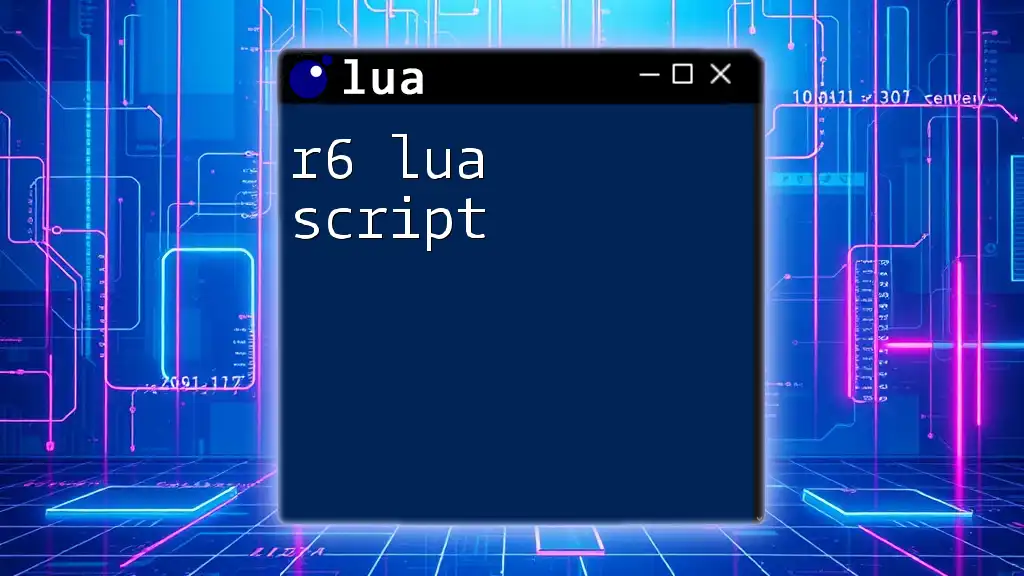
Call to Action
Ready to dive deeper? Start experimenting with Lua and GDScript today! Engage in tutorials, workshops, and join community forums to enhance your understanding and skills. Your adventure in scripting awaits!
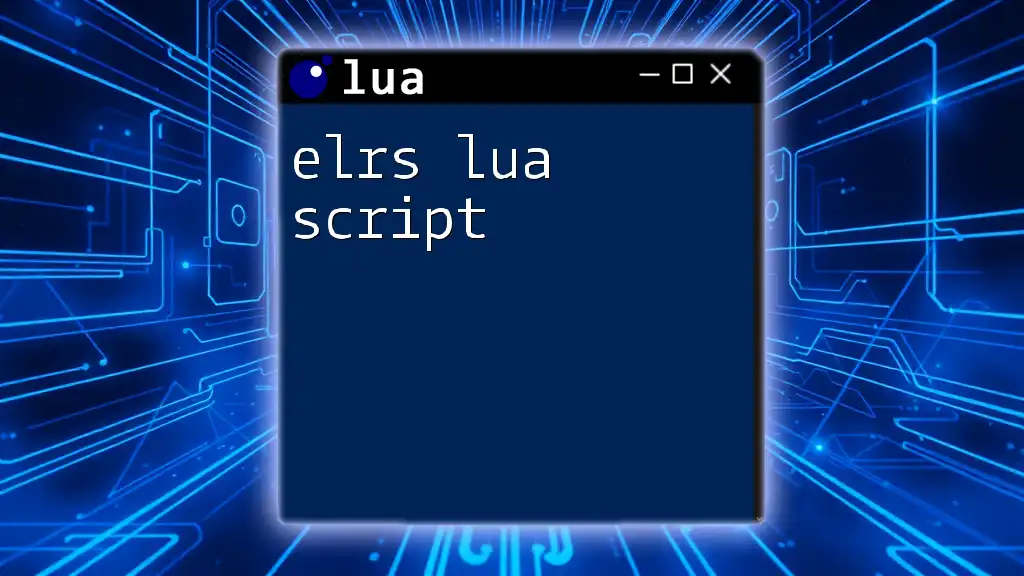
Additional Resources
For further learning, explore the official documentation for Lua and GDScript, along with forums such as Stack Overflow and specialized Discord groups. Recommended readings and online courses can also provide valuable insights as you venture into these exciting scripting languages.

